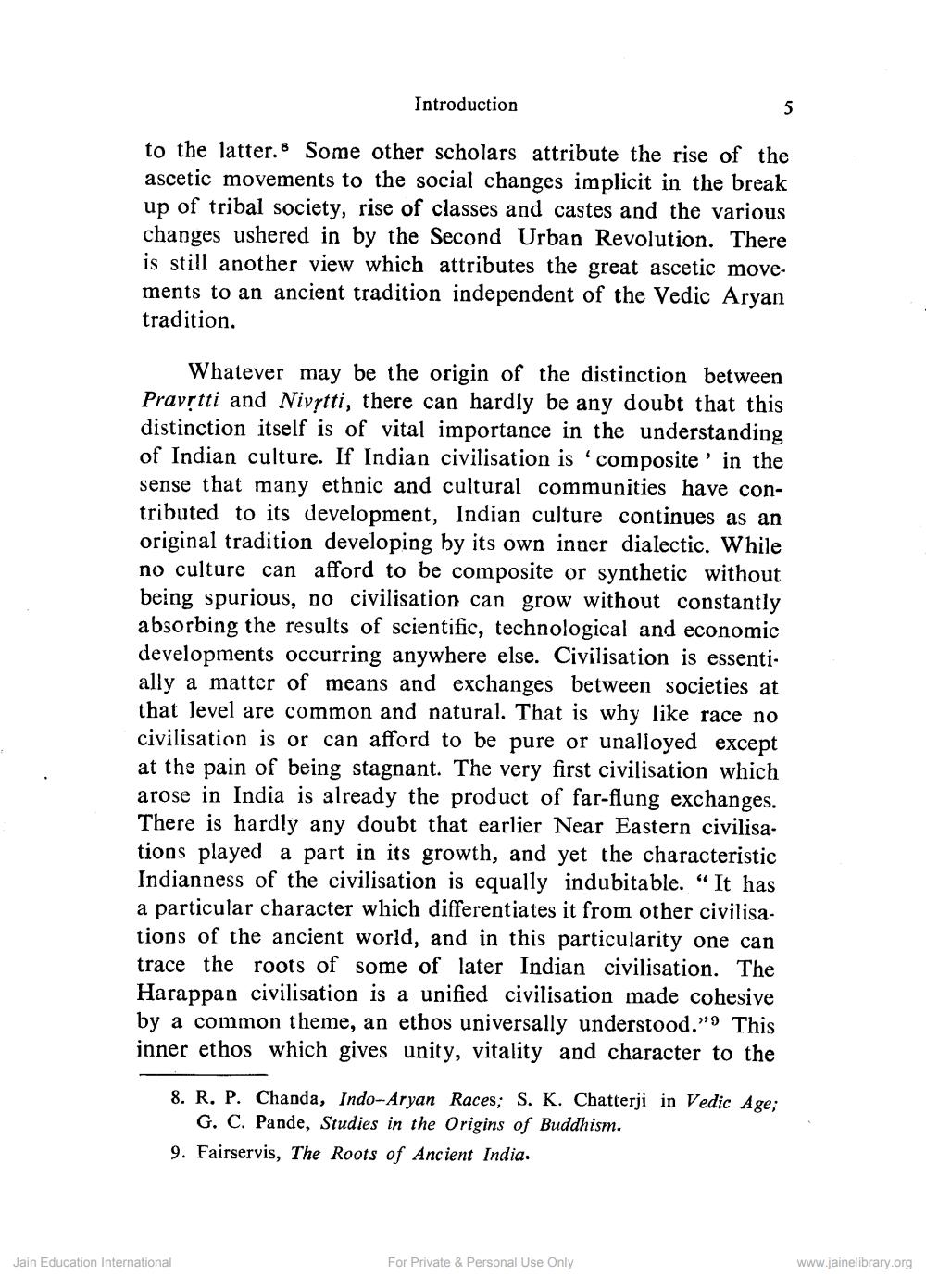Book Title: Sramana Tradation Author(s): G C Pandey Publisher: L D Indology Ahmedabad View full book textPage 8
________________ Introduction to the latter. 8 Some other scholars attribute the rise of the ascetic movements to the social changes implicit in the break up of tribal society, rise of classes and castes and the various changes ushered in by the Second Urban Revolution. There is still another view which attributes the great ascetic movements to an ancient tradition independent of the Vedic Aryan tradition, Whatever may be the origin of the distinction between Pravștti and Nivytti, there can hardly be any doubt that this distinction itself is of vital importance in the understanding of Indian culture. If Indian civilisation is composite' in the sense that many ethnic and cultural communities have contributed to its development, Indian culture continues as an original tradition developing by its own inner dialectic. While no culture can afford to be composite or synthetic without being spurious, no civilisation can grow without constantly absorbing the results of scientific, technological and economic developments occurring anywhere else. Civilisation is essenti. ally a matter of means and exchanges between societies at that level are common and natural. That is why like race no civilisation is or can afford to be pure or unalloyed except at the pain of being stagnant. The very first civilisation which arose in India is already the product of far-flung exchanges. There is hardly any doubt that earlier Near Eastern civilisations played a part in its growth, and yet the characteristic Indianness of the civilisation is equally indubitable. “It has a particular character which differentiates it from other civilisa. tions of the ancient world, and in this particularity one can trace the roots of some of later Indian civilisation. The Harappan civilisation is a unified civilisation made cohesive by a common theme, an ethos universally understood.”! This inner ethos which gives unity, vitality and character to the 8. R. P. Chanda, Indo-Aryan Races; S. K. Chatterji in Vedic Age; G. C. Pande, Studies in the Origins of Buddhism. 9. Fairservis, The Roots of Ancient India. Jain Education International For Private & Personal Use Only www.jainelibrary.orgPage Navigation
1 ... 6 7 8 9 10 11 12 13 14 15 16 17 18 19 20 21 22 23 24 25 26 27 28 29 30 31 32 33 34 35 36 37 38 39 40 41 42 43 44 45 46 47 48 49 50 51 52 53 54 55 56 57 58 59 60 61 62 63 64 65 66 67 68 69 70 71 72 73 74 75 76 77 78 79 80 81 82 ... 90
